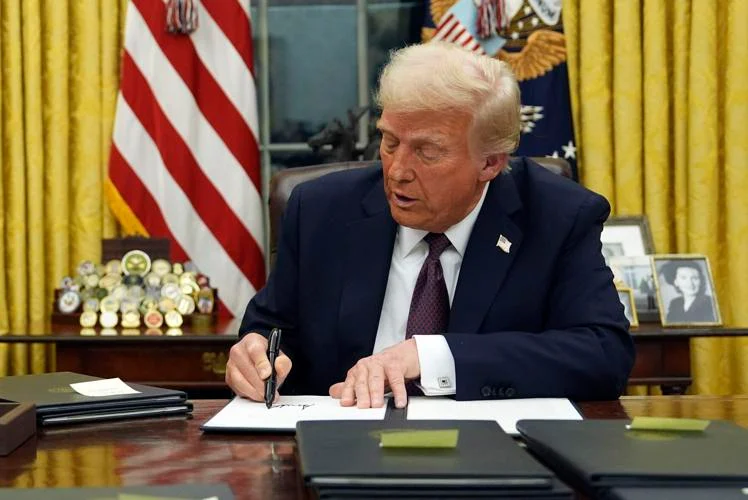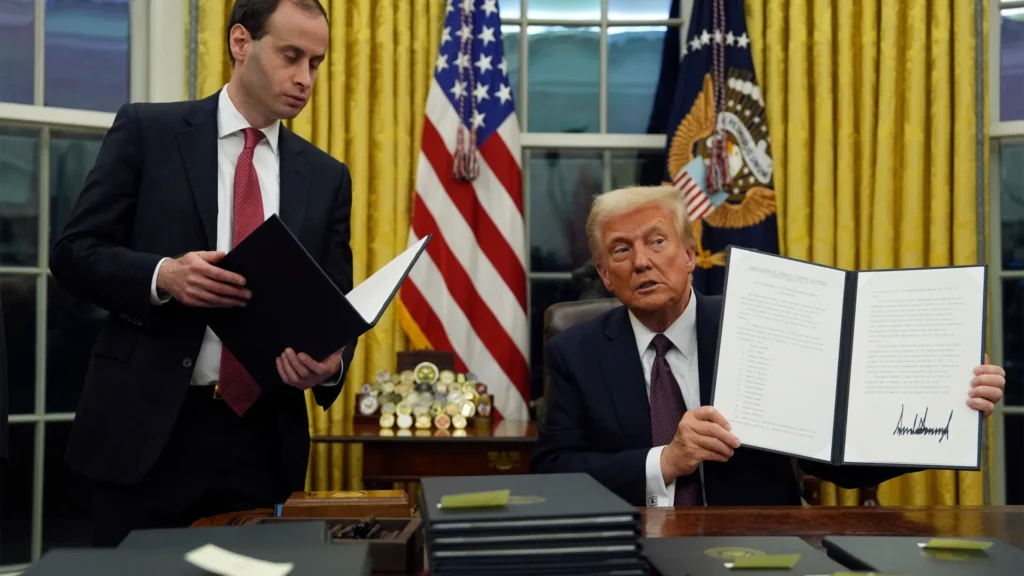President Donald Trump’s administration has initiated a significant effort to dismantle diversity, equity, and inclusion (DEI) initiatives across the federal government. A directive issued by the Office of Personnel Management on Tuesday instructed agencies to place DEI staff on paid leave immediately and begin preparing plans to eliminate their roles.

These measures are part of a broader strategy to reverse policies implemented during the Biden administration, which aimed to promote inclusivity and address systemic inequities within federal institutions.
The administration’s order requires federal agencies to remove all DEI-related content from public websites, cancel ongoing DEI-related trainings and contracts, and compile lists of DEI offices and personnel as they existed before the 2024 election.
Additionally, federal employees are being encouraged to report any DEI programs they suspect have been renamed to avoid detection, with warnings of potential consequences for noncompliance.
This initiative follows an executive order signed by Trump on his first day in office, which seeks to undo federal DEI programs, including anti-bias training and policies aimed at supporting marginalized communities.
Biden’s efforts had mandated that federal agencies develop diversity plans, provide annual progress reports, and contribute data to a dashboard tracking workforce demographics.
These programs also included measures such as targeted grants and contracts benefiting historically underserved communities, which critics have labeled as discriminatory against non-minority groups.
Legal and logistical challenges are expected as the administration attempts to implement these changes, especially with long-standing programs involving billions of dollars in federal funding.
Policies tied to grants for housing assistance or emergency relief, for instance, may require significant bureaucratic adjustments.
Some of Biden’s initiatives, such as banning salary history inquiries to address pay disparities, could face prolonged regulatory processes before they are overturned.

Reactions to the administration’s actions have been sharply divided. Conservative groups advocating for the rollback argue that DEI programs unfairly prioritize race and gender, while proponents of the programs contend that these measures ensure representation and opportunity for historically excluded communities.
Critics of Trump’s order have also warned of the risks of undermining bipartisan-supported policies, such as those aimed at expanding job opportunities for people with criminal records.
As the Trump administration continues to pursue these changes, the broader impact is expected to extend beyond federal agencies. Many private companies, already facing legal and political pressure, have begun scaling back their own diversity programs.
While Trump’s order signals an aggressive stance against DEI, experts suggest that deeply embedded federal policies may prove resistant to immediate and wholesale dismantling.
The administration’s actions highlight a stark departure from the previous administration’s priorities, raising questions about the future of inclusivity and equity efforts both within and outside of government. Critics argue that dismantling these programs could marginalize communities that have historically struggled for representation, while supporters view the move as a necessary realignment of federal policies.



